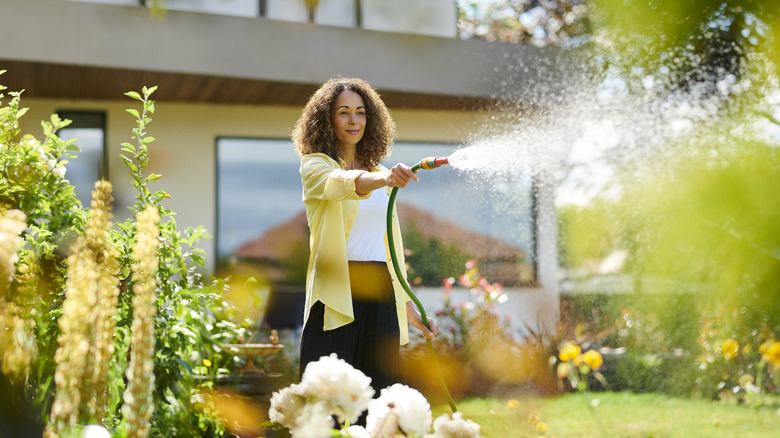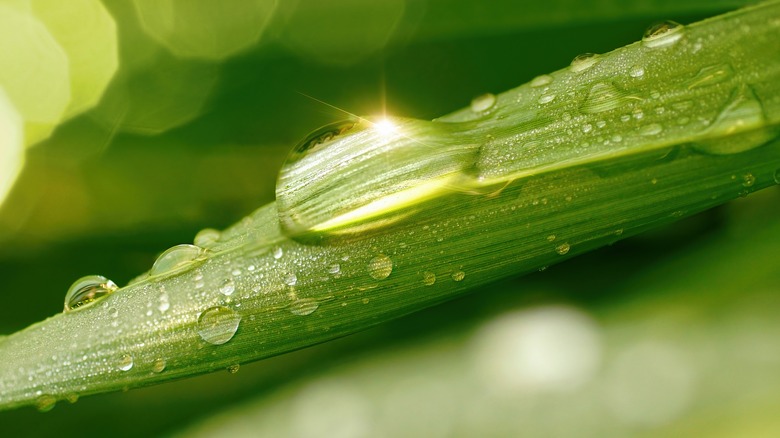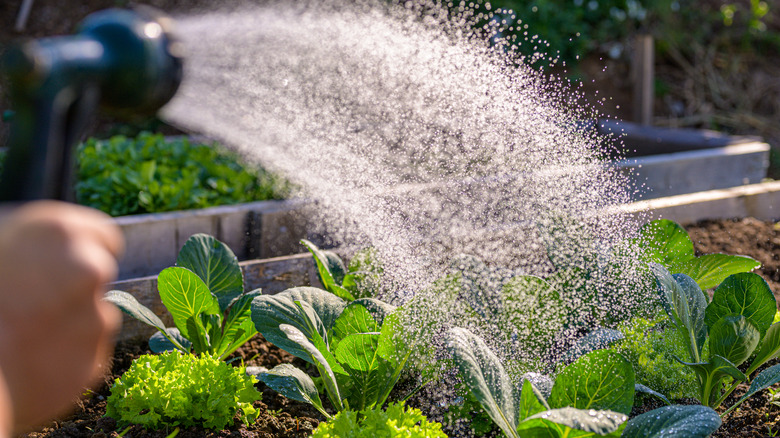Does Watering On A Sunny Day Really Burn Your Plants?
Once upon a time, the average home gardener was simply advised to provide adequate water and sunlight to plants in order for them to grow and prosper. Fast-forward to the age of the internet where misinformation and disinformation propagate faster than pesky dandelions. These days homeowners are forced to weed through piles of viral gardening myths, such as watering on sunny days can burn your plants. However, it turns out this fictitious claim lacks scientific rigor and should be quickly uprooted to avoid confusing ordinary homeowners who merely want to determine the best time to water their plants.
The notion that watering plants on hot, sunny days can burn leaves has grown into an urban legend, largely because of a misunderstanding regarding leaf scorch. The brown, burned, or shriveled areas of leaf tissue is not caused by watering foliage in the midday sun. On the contrary, it's primarily the result of insufficient water supply. Moreover, factors unrelated to the sun, such as extreme wind, frost, or improperly diluted fertilizer can trigger leaf scorch. Ironically, by leaning into the myth that watering plants on sunny days will burn their leaves, you are actually interfering with the very situation that causes leaf scorch.
Sunny day watering won't burn a plant's leaves
Often implanted in the minds of impressionable home gardeners is the legend that water droplets deposited by sprinklers or hoses mimic tiny magnifying glasses which funnel the sun's energy creating intensely hot laser beams that burn leaves. Further cultivating the false narrative is the idea that wet leaf surfaces are more likely to burn than dry ones due to water's ability to efficiently conduct heat. Neither theory is true.
Busting the myth boils down to physics and understanding how distance (or focal length) and angles make it statistically impossible for a water droplet to sufficiently focus sunlight in a manner that would burn a leaf. Simply put, since water droplets sit flat on a leaf they aren't able to focus light effectively enough to cause foliar incineration. Moreover, if you've ever watched what happens when the sun comes out after a summer rainstorm you've seen how quickly water droplets evaporate. This too chips away at the idea that sun plus water on leaves equals charring. Still, if you've spent time blindly following this horticulture folklore, don't feel bad. Observing a seared plant as you water it on a sunny day can easily cause you to associate one with the other. The good news is damage control is not out of the question.
Best practices for watering plants
If you notice your plants' leaves looking toasty, go ahead and water them regardless of how sunny it is. However, direct the water to the roots to ensure the most effective delivery of hydration. While it's not a crime to lightly shower the leaves, you don't want to use this method as your primary source of freshwater irrigation, especially if you are doing so when the sun is at its peak. The reason goes back to evaporation. If you saturate your plant's leaves in the heat of the day, the sun will evaporate the majority of the water, and consequently rob the root system of valuable sustenance.
To foster healthy growth, aim to water your plants in the early morning or late evening when the soil is cool. Doing so will increase the chances of the water filtering down into the plant's roots before it evaporates. In addition, by giving your plants a thorough soak in the morning they have enough time to store moisture beneath the soil's surface to tolerate heat generated by the midday sun.
Finally, don't be fooled by appearances. On a hot day, the surface of the soil may look dry, but underneath it's still damp. To avoid overwatering, use a wooden dowel or a trowel to check the soil's moisture level. Insert either tool about three to four inches into the soil, if it feels moist, hold off on hydrating, however, if it feels dry, it's time to add water.


